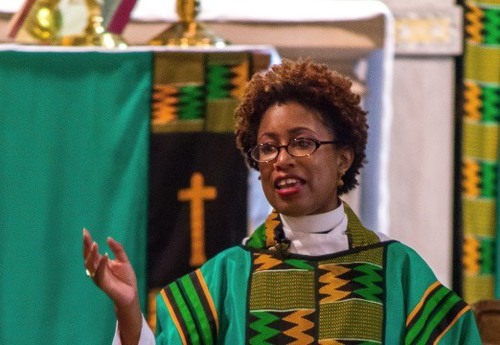Rachel Held Evans interviews The Reverend Wil Gafney, Ph.D., Associate Professor of Hebrew Bible at Brite Divinity School in Fort Worth, Texas. Gafney is an Episcopal priest canonically resident in the Diocese of Pennsylvania and licensed in the Diocese of Fort Worth. The conversation is part of a series called “Ask a….” This segment is called “Ask a womanist biblical scholar.” The questions come from readers.
For me, living, praying, reading, writing and living Hebrew Bible as a black woman is no more problematic than being a black woman in the Americas. My primary approach to the text is to look/listen for what it has to say. I expect it to be revelatory and illuminating because it is scripture and for me as an Episcopalian; those are my presuppositions. That means God’s words are in there somewhere and, knowing the text is androcentric, patriarchal, kyriarchal, hegemonic and full of cultural biases – like America, (minus the kyriarchy but the oligarchy is coming close). And, because the Word is both human and divine, I know it will be swaddled in the stuff of flesh. The Hebrew Scriptures are rich and full of life in all of its and their complexities; the God revealed in its pages transcends the limited and limiting portrayal in the text, pointing to a God beyond the text who is shadowed by God in the text. Even though only about 9% of female characters have names in the text, there are more than one hundred “eleventy” (111) women’s names that are preserved. So many rich stories among them that are largely neglected and more among the nameless women and missing characters including women who wield power and authority and successfully negotiate the androcentric framing of the text.

